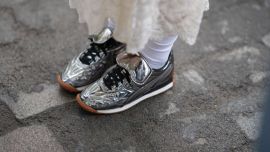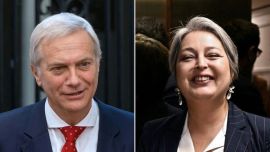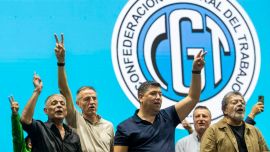The United States’ merica’s traditional allies are desperately seeking new friends as Donald Trump hails the leaders of North Korea and China instead, but may have to rely on themselves to ride out the storm, analysts said.
In the latest blow from the country that is supposed to be their closest friend, the EU, Canada and Mexico found themselves hit Friday by punishing US tariffs on steel and aluminium imports.
Recent months have also seen Trump pull out of the Iran nuclear deal, open a US Embassy in Jerusalem, leave the Paris climate pact and lambast NATO allies for not paying their way.
European Commission chief Jean-Claude Juncker said Thursday that “each time I think of Trump, I am lost,” while EU trade commissioner Cecilia Malmstrom said Friday that the tariffs would further harm transatlantic ties.
“The Europeans and Canadians are on their own when it comes to the US, at least until the next election,” said Judy Dempsey, editor-in-chief of Strategic Europe, the blog of the Carnegie Europe think-tank.
“The Europeans are competitors for Trump in trade, on values and human rights. With the authoritarian regimes he does not face that and he seems much more comfortable with the Russians, with North Korea, with the Chinese,” Dempsey added.
‘FULL-FRONTAL ASSAULT’
Trump’s onslaught on Washington’s allies has been all the more disorientating as he turns on the charm with a string of authoritarian states long seen as US rivals.
When not coaxing North Korean leader Kim Jong-un into a landmark nuclear disarmament summit, Trump has admiringly called Chinese leader Xi Jinping a “world-class poker player” amid their own trade dispute.
Trump has also defended his efforts to have a “good relationship” with Russian President Vladimir Putin, despite the assessment of US intelligence agencies that Moscow meddled in the 2016 US presidential election.
“Trump’s full-frontal assault against his allies has blurred lines and caused incomprehension,” said Elvire Fabry, senior research fellow at the Jacques Delors Institute think-tank in Brussels.
The question for Europe now is how to counter a president who has called the EU a “vehicle for Germany,” praised Britain’s Brexit vote, and lashed out at NATO for freeloading.
Fabry said the Europeans were now pushing a “new narrative” in which, as the world’s biggest market of 500 million people, they will lead a push to preserve the “regulated globalisation” that Trump is trying to overturn, Fabry said.
For that, they have tried to enlist the same country as Trump has: China.
In a symbolic step, EU diplomatic chief Federica Mogherini appeared alongside the Chinese foreign minister in Brussels on Friday just hours after the US tariffs took effect to call for a “rules-based global order”.
She also cited trade deals that the EU is negotiating with several countries including Mexico – which was also hit by the new tariffs.
‘PULL TOGETHER’
But Dempsey warned that Europe had to rely on itself.
“They can build on those trade relationships, but they are not a substitute for Europe’s future direction,” Dempsey said.
Just what that direction is, however, remains unclear.
Europe is already under strain from internal crisis, with the rise of a populist government in Italy sparking fears of fresh turmoil in the eurozone and Spain shaken by the ousting of its prime minister on Friday.
Dempsey said that Europe was badly lacking the strong leadership of German Chancellor Angela Merkel, whose power seemed to have been sapped by her struggle to form a coalition government and by her frosty relationship with Trump.
“Europe needs to pull together and show unity,” Dempsey said, urging Merkel to get behind the EU reform programme of French President Emmanuel Macron.
Europe is putting its credibility on the line with its confrontation with Trump, said EU energy commissioner Miguel Arias Canete, who became the first western official to visit Tehran after Trump pulled out of the nuclear deal. The EU has joined Russia and China in trying to keep the deal alive despite heavy US sanctions on Iran.
“Can Europe stand strong in the face of US interests? The Iranians have their doubts. I think this subject is crucial and will determine the role of the EU,” Canete said.
The tensions threaten to come to a head when Trump meets NATO leaders at a summit in Brussels on July 11 and 12.
“The very concept of an ‘ally’ risks being called into question” at the summit, said Fabry.
by BY DANIEL KEMP

























Comments